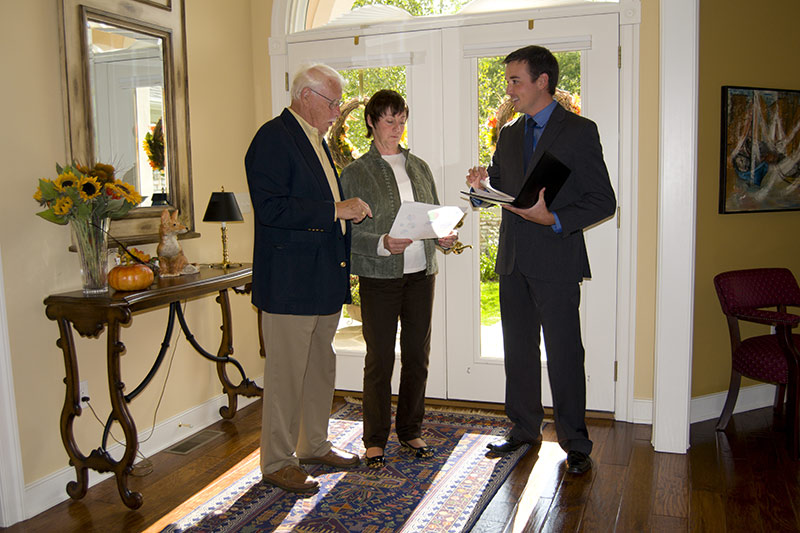
You will need to know what education is required before you can apply for a Florida real-estate license. This article will explain how much education is necessary before you can get a license. It will also discuss the time commitment and how to get the best out of your education. We'll also discuss which courses you should take and how much to expect as a result.
Pre-licensing education
Before you can start practicing real estate in Florida, you need to complete some pre-licensing education. You must take at least 63 hours of pre-licensing education before you can apply for a license. The courses should cover mathematics, law principles, and real estate practice. Some courses may cost as little as $100 or more. A 70% passing score is required to become licensed in Florida. Attorneys do NOT need to complete any pre-licensing training. They are permitted to sit for the Sales Associate exam without a prelicense.

Online or in-person pre-licensing education can be obtained for real property in Florida. Some of these courses can be self-paced with practice exams. Some offer practice exams and textbooks as study aids. You should ensure that you meet all state requirements. There are several online programs that offer prelicensing education.
Cost of pre-licensing training
The cost of pre-licensing education in real estate depends on where you live. It can run from $100 to $1,000 depending on your state. This is due to the fact that creating real estate courses takes a lot of energy and time. Companies who create these courses must pay their staff to ensure that the content is up to date and in compliance with all state laws. While many brokerages and title firms offer continuing education classes for no cost, they are not always free. These courses are more thorough and longer than the other courses.
Regardless of the state you live in, the cost of pre-licensing education to obtain a real estate license in Florida is worth every penny. A Florida real estate exam consists of 100 multiple-choice questions and the passing score is 75%. There are 45 questions based on real estate law and principles and 10 questions that test your mathematical ability. If you study properly, you can expect to pass with a score of 75% or higher.
Time required for pre-licensing education
In order to obtain a real estate license in Florida, an individual must be eighteen years old and pass a background check. They must have completed at most 90 hours of education before they can be licensed and take a six-hour course about contract writing. They must also have good moral character, and they must declare any criminal convictions. A person who has been convicted for a felony will not be eligible to receive a license as a real estate agent. Fingerprint clearance is required. Once they have been approved by their Broker online, they can then continue their education.

Applicants must have at least 18 years old and a United States issued social security number. Additionally, applicants need to have a highschool diploma. Although real estate education is not required in Florida to become licensed broker, it can help you to get the basics down. A few states are recognized by Florida, including Arkansas, Georgia and Illinois. Applicants are eligible to get a license in Florida if they have a real estate license from any of these states. Candidates from Arkansas, Georgia and Illinois must also pass a state exam.
FAQ
How much money can I get to buy my house?
This can vary greatly depending on many factors like the condition of your house and how long it's been on the market. Zillow.com shows that the average home sells for $203,000 in the US. This
Is it better to buy or rent?
Renting is generally cheaper than buying a home. It is important to realize that renting is generally cheaper than buying a home. You will still need to pay utilities, repairs, and maintenance. The benefits of buying a house are not only obvious but also numerous. You will be able to have greater control over your life.
What time does it take to get my home sold?
It all depends on several factors such as the condition of your house, the number and availability of comparable homes for sale in your area, the demand for your type of home, local housing market conditions, and so forth. It may take up to 7 days, 90 days or more depending upon these factors.
Statistics
- Private mortgage insurance may be required for conventional loans when the borrower puts less than 20% down.4 FHA loans are mortgage loans issued by private lenders and backed by the federal government. (investopedia.com)
- This seems to be a more popular trend as the U.S. Census Bureau reports the homeownership rate was around 65% last year. (fortunebuilders.com)
- Some experts hypothesize that rates will hit five percent by the second half of 2018, but there has been no official confirmation one way or the other. (fortunebuilders.com)
- It's possible to get approved for an FHA loan with a credit score as low as 580 and a down payment of 3.5% or a credit score as low as 500 and a 10% down payment.5 Specialty mortgage loans are loans that don't fit into the conventional or FHA loan categories. (investopedia.com)
- 10 years ago, homeownership was nearly 70%. (fortunebuilders.com)
External Links
How To
How to manage a rental property
Renting your home can be a great way to make extra money, but there's a lot to think about before you start. This article will help you decide whether you want to rent your house and provide tips for managing a rental property.
Here's how to rent your home.
-
What is the first thing I should do? Before you decide if you want to rent out your house, take a look at your finances. If you have debts, such as credit card bills or mortgage payments, you may not be able to afford to pay someone else to live in your home while you're away. Check your budget. If your monthly expenses are not covered by your rent, utilities and insurance, it is a sign that you need to reevaluate your finances. ), it might not be worth it.
-
How much will it cost to rent my house? There are many factors that influence the price you might charge for renting out your home. These include factors such as location, size, condition, and season. It's important to remember that prices vary depending on where you live, so don't expect to get the same rate everywhere. Rightmove reports that the average monthly market price to rent a one-bedroom flat is around PS1,400. This means that your home would be worth around PS2,800 per annum if it was rented out completely. Although this is quite a high income, you can probably make a lot more if you rent out a smaller portion of your home.
-
Is it worthwhile? It's always risky to try something new. But if it gives you extra income, why not? Make sure that you fully understand the terms of any contract before you sign it. You will need to pay maintenance costs, make repairs, and maintain the home. Renting your house is not just about spending more time with your family. Make sure you've thought through these issues carefully before signing up!
-
Are there benefits? So now that you know how much it costs to rent out your home and you're confident that it's worth it, you'll need to think about the advantages. There are many reasons to rent your home. You can use it to pay off debt, buy a holiday, save for a rainy-day, or simply to have a break. No matter what your choice, renting is likely to be more rewarding than working every single day. If you plan ahead, rent could be your full-time job.
-
How do you find tenants? Once you decide that you want to rent out your property, it is important to properly market it. Start by listing online using websites like Zoopla and Rightmove. You will need to interview potential tenants once they contact you. This will enable you to evaluate their suitability and verify that they are financially stable enough for you to rent your home.
-
How do I ensure I am covered? If you fear that your home will be left empty, you need to ensure your home is protected against theft, damage, or fire. You will need to insure the home through your landlord, or directly with an insurer. Your landlord will usually require you to add them as additional insured, which means they'll cover damages caused to your property when you're present. This does not apply if you are living overseas or if your landlord hasn't been registered with UK insurers. In such cases, you will need to register for an international insurance company.
-
Sometimes it can feel as though you don’t have the money to spend all day looking at tenants, especially if there are no other jobs. However, it is important that you advertise your property in the best way possible. Make sure you have a professional looking website. Also, make sure to post your ads online. It is also necessary to create a complete application form and give references. Some prefer to do it all themselves. Others hire agents to help with the paperwork. Interviews will require you to be prepared for any questions.
-
What do I do when I find my tenant. If you have a contract in place, you must inform your tenant of any changes. If you don't have a lease, you can negotiate length of stay, deposit, or other details. While you might get paid when the tenancy is over, utilities are still a cost that must be paid.
-
How do I collect the rent? When the time comes to collect the rent, you'll need to check whether your tenant has paid up. If not, you'll need to remind them of their obligations. After sending them a final statement, you can deduct any outstanding rent payments. If you're having difficulty getting hold of your tenant you can always call police. They will not usually evict someone unless they have a breached the contract. But, they can issue a warrant if necessary.
-
How can I avoid potential problems? Renting out your house can make you a lot of money, but it's also important to stay safe. You should install smoke alarms and carbon Monoxide detectors. Security cameras are also a good idea. You should also check that your neighbors' permissions allow you to leave your property unlocked at night and that you have adequate insurance. You should never allow strangers into your home, no matter how they claim to be moving in.